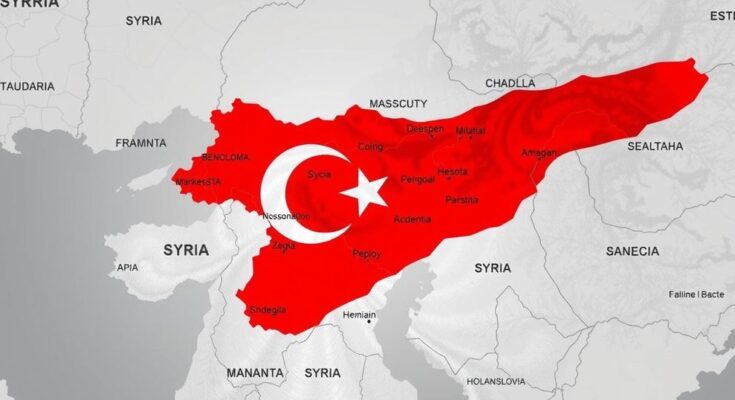Turkey has emerged as the dominant foreign player in Syria following the fall of Assad’s government, significantly diminishing Iran’s influence. Despite historical competition, experts suggest that Turkey’s enhanced role does not necessarily threaten its relationship with Iran, as both may still share common interests against external adversaries like Israel. The evolving dynamics have implications beyond Syria, affecting regional stability in the South Caucasus and the fate of Kurdish forces.
The Syrian civil war has resulted in a significant shift in the balance of foreign influence in the region, particularly favoring Turkey at the expense of Iran. With the fall of Bashar al-Assad’s government, largely due to the actions of rebel factions supported by Ankara, Turkey has supplanted Iran and Russia as the primary foreign player in Syria. Historically, Iran has viewed Turkish influence with considerable apprehension, particularly given Iran’s strategic need for Assad to remain in power to project its power in the region, notably through its support for proxies like Hezbollah.
Experts posit that Turkey’s ascendancy in Syria involves a multifaceted agenda, including curbing the influence of Kurdish forces—specifically the People’s Protection Units (YPG)—and facilitating the return of Syrian refugees. Despite Turkey’s enhanced role, analysts contend that relations with Iran may not drastically change, as both countries may still find overlapping interests, such as mutual opposition to Israeli incursions.
Turkey’s growing influence has significant potential implications not just for Syria, but also for the broader geopolitical landscape, particularly in the South Caucasus. This shift may alter the dynamics of collaborations established during the Astana talks, which were aimed at conflict resolution in Syria, yet provided a platform for tri-nation dialogue among Turkey, Iran, and Russia. Furthermore, while Iranian forces are likely to seek to bolster their waning influence by possibly leveraging local factions against Ankara, the evolving situation presents both challenges and opportunities for all involved.
Moreover, U.S. support for Kurdish-led forces in Syria has diminished, casting an uncertain future for these groups, particularly as Ankara remains poised to exert pressure following the rise of pro-Turkish factions post-Assad’s fall. The imminent danger lies in the potential for Kurdish autonomy to be significantly compromised unless striking agreements are reached with competing factions within Syria. As the geopolitical landscape continues to evolve, the interplay of relations between these regional powers will remain crucial in understanding future developments in Syria and its adjacent regions.
The analysis focuses on the shifting dynamics of foreign influence in Syria, particularly spotlighting the intensifying competition between Turkey and Iran following the weakening of Bashar al-Assad’s regime due to uprisings. This change is framed against the backdrop of Turkey’s longstanding regional ambitions, aiming to mitigate the power of Kurdish groups, while Iran concentrated on maintaining a foothold in Syria to strengthen its broader regional strategies. The dissolution of the Assad government transforms the longstanding relationships and rivalries among Turkey, Iran, and Russia, while also affecting the position of U.S.-aligned forces in the region.
In conclusion, the decline of Iranian influence following the fall of Assad considerably enhances Turkey’s role in Syria. It not only shifts the balance of power but also raises questions about the future of Kurdish autonomy in the region. While there may be underlying tensions between Iran and Turkey, the necessity for coordination regarding mutual interests, particularly against external influences like Israel, could foster limited cooperation, even amid stark competition. The resolution of these conflicts will undoubtedly shape the trajectory of Syrian politics and foreign interventions in the months to come.
Original Source: www.eurasiareview.com




